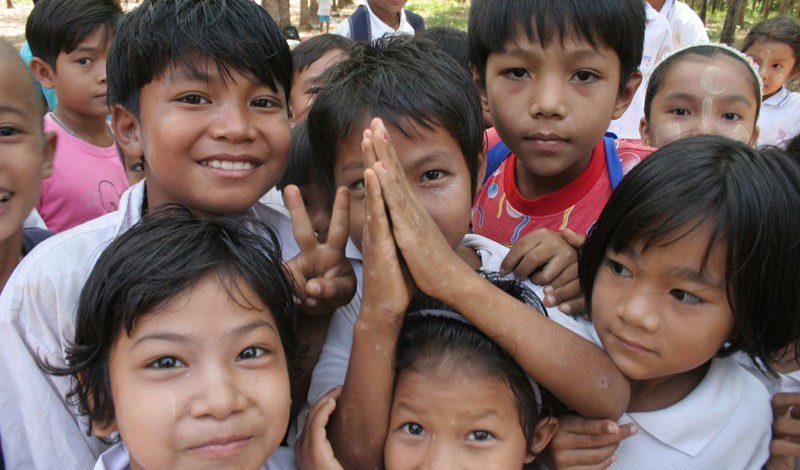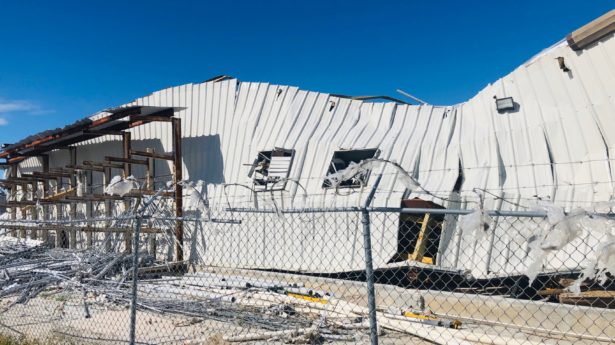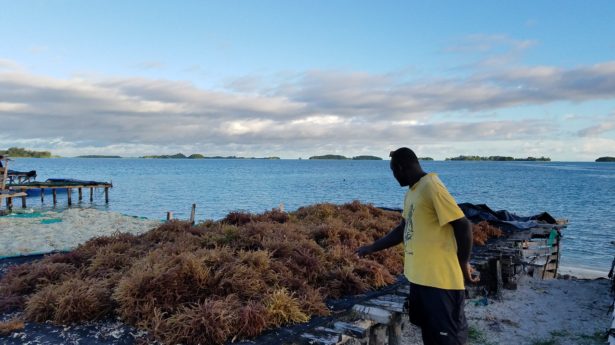The Unitarian Universalist Service Committee advances human rights through grassroots collaborations.
UUSC Commemorates 25 Years of Human Rights Work in Burma

By UUSC Staff on June 9, 2020
The human rights challenges faced by Burmese, ethnic, and religious minorities are a bellwether for the international community’s demand for dignity and equality in implementing development and humanitarian aid programs. For UUSC and its supporters, the promotion of human rights in Burma has been an opportunity to contribute to the building of a multi-generational, global solidarity movement with intersections across multiple issues. This movement is responsive to a quickly shifting international political landscape increasingly characterized by nationalism, authoritarianism, xenophobia, and inequality.
As Burma’s human rights and democracy movement internationalized with the military’s annulment of national elections and subsequent imprisonment of Nobel Peace Prize Laureate Aung San Suu Kyi, UUSC’s support in the 1990s and early 2000s focused largely on supporting human rights documentation, women’s leadership, and grassroots mobilization among refugee and exiled activist communities at the Thai-Burma border.
UUSC was a critical early supporter of the international solidarity movement for human rights and democracy in Burma, and its activities also included domestic U.S.-based advocacy and mobilization of consumer boycotts and sanctions legislation targeting the Burmese military.
From the mid-2000s, UUSC expanded its support to include assistance for grassroots communities facing natural disasters, including funding a community center for Burmese migrants in Southern Thailand after the unprecedented Indian Ocean Tsunami of 2004, and providing humanitarian aid in 2008 following Cyclone Nargis, considered the worst natural disaster in the country’s recorded history in which nearly 140,000 people lost their lives. At a time when the international community’s access to the country was severely restricted by the military junta, UUSC was able to provide funds to local partners to move aid to the most vulnerable communities, including unaccompanied children, in the form of food, water treatment supplies, and health care to storm-affected villagers in the hardest hit Irrawaddy River Delta.
Many of the community and human rights activists that UUSC supported were at the forefront of the civil society movement that pushed for the military government to undertake democratic reforms.
Burma experienced major democratic progress in 2012 as the junta opened elections to formerly banned political parties, including Aung San Suu Kyi’s National League for Democracy; released hundreds of political prisoners; and allowed civil society to organize domestically. Corresponding media freedoms, the beginnings of a nationwide peace process, and Suu Kyi’s election to the highest levels of civilian government led many international experts to eagerly claim Burma as a democratic success story.
Despite these initial reforms, however, the military continued to exert its power across minority areas to control land and resources, and the flourishing of social media and unchecked Islamophobia sparked what is arguably the country’s worst human rights and humanitarian crisis to date. The 2012 communal violence and subsequent military campaigns of 2016 and 2017 against the Rohingya Muslim minority in Northern Rakhine State has been unprecedented in its scale and brutality. In the final climactic push of 2017, an untold number of innocent civilians died and more than 700,000 Rohingya were forced to flee as refugees to Bangladesh in a matter of weeks, joining previous generations of Rohingya refugees and creating what has become the world’s largest refugee camp. What surprised most long-time international supporters of the Burma human rights movement is that the Rohingya were disparaged in nationalist hate speech and xenophobic language even by members of the pro-democracy movement.
With a United Nations investigation claiming that the crimes committed against the Rohingya “bear the hallmarks of genocide,” and an open case at the International Court of Justice now determining Burma’s culpability in upholding its state obligations under the 1948 Genocide Convention, UUSC’s Burma program has come back full circle to its organizational roots, wherein our founders worked to rescue Jewish children during the early days of the Holocaust.
Today, to fight against this new genocide, UUSC focuses on supporting Rohingya partners and a small but growing number of domestic and international allies to build a solidarity movement for justice, accountability, and equality for ethnic and religious minorities. This work includes human rights, peacebuilding, and civic education for Rohingya youth; international advocacy at the UN and national levels; and humanitarian aid for the most vulnerable among Rohingya refugee communities, namely women and children.
Though the trajectory of Burma’s human rights progress has seen its highs and lows, UUSC can proudly say that after 25 years, the organization has worked steadfastly to cultivate and support a grassroots movement and approach to social change that has now seamlessly expanded to the Rohingya community, whose persecution and experience of genocide is now a global and critical concern. Though change has been and will be incremental, the solidarity and long-term human rights support that UUSC’s offers to grassroots partners remains crucial, and we are committed to ensuring that we lead by example when it comes to promoting international advocacy and humanitarian aid that is more equitable and locally led.
***
About UUSC: Guided by the belief that all people have inherent worth and dignity, UUSC advances human rights globally by partnering with affected communities who are confronting injustice, mobilizing to challenge oppressive systems, and inspiring and sustaining spiritually grounded activism for justice. We invite you to join us in this journey toward realizing a better future!
Photo Credit: Audubon McKeown

